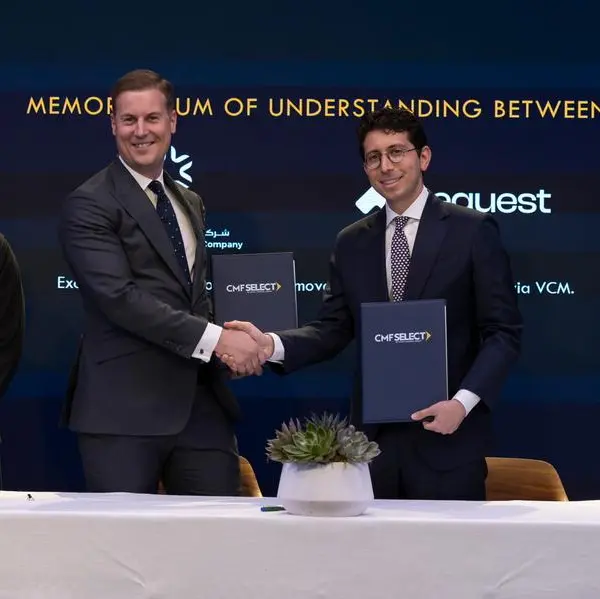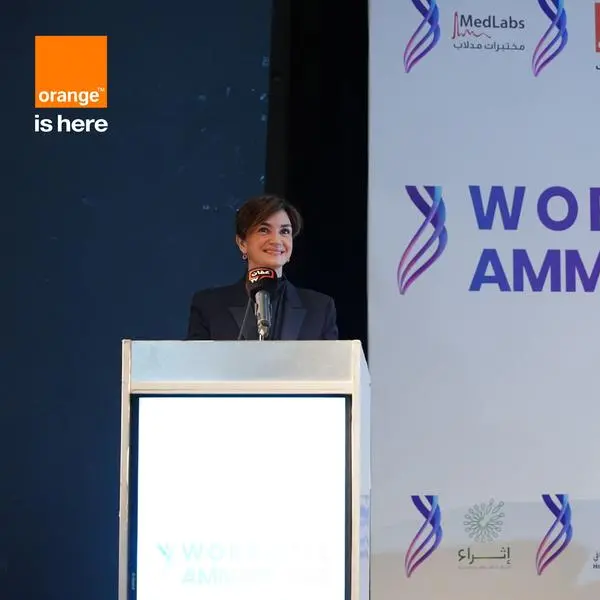PHOTO
Dubai: As part of the initiatives of UAE Council for Digital Wellbeing, chaired by His Highness Sheikh Saif bin Zayed Al Nahyan, Deputy Prime Minister and Minister of Interior, the UAE National Program for Artificial Intelligence launched the "Deepfake Guide", with the aim of raising social awareness on the harmful and useful uses of deepfake technologies, their effect on social wellbeing, and the means to face the various challenges resulting from the harmful applications of such technologies.
The “Deepfake Guide” aims to deep-root the concept of comprehensive wellbeing in the UAE, enabling individuals to adopt healthy technological habits, introducing best technological practices to face digital challenges, and providing guidance on how to deal effectively with technology and ensure its positive impact on people’s lives. Technological advances further enhance the effectiveness of multiple sectors supporting wellbeing; such as medicine, healthcare, and government services; and promote national economy, entrepreneurship and investments leveraging personal data-based technologies to develop advanced services using virtual reality (VR) techniques.
His Excellency Omar Sultan AlOlama, Minister of State for Artificial Intelligence, Digital Economy and Remote Work Applications, stressed that advanced technology has contributed to achieving a quantum leap in societies’ wellbeing. In addition, it has proven its effectiveness and positive comprehensive impact on various sectors. H.E. pointed out the it is imperative to focus on the positive and beneficial uses of advanced technologies, raise community members’ awareness on their potential and diverse applications, acquaint them with the most important future challenges, and use technology in developing innovative solutions to build a better future for next generations.
AlOlama pinpointed that the launch of the "Deepfakes Guide" comes within the national efforts aiming to shed lights on the various positive uses of future technologies and highlight the challenges resulting from the misuse of technology tools and their impact on societies.
“The UAE National Program for Artificial Intelligence supports all programs and initiatives aiming at accelerating and promoting the adoption of modern technology in vital future sectors, while ensuring the highest levels of safety, privacy and security. The program cooperates with various national and global government and private sector entities to ensure efficient usage of future technology for the benefit of the economy and the society as a whole,” His Excellency added.
Deepfakes
“Deepfakes” is a common term referring to AI systems which create fake audio and video clips that seem quite genuine and convincing. With the advancement of modern technology, it has become easier for laypersons to alter audio and video content that may be used in cyberbullying.
Widespread Useful Applications
On the other hand, there are many beneficial uses for advanced technology tools such as medical applications, movies and advertisements content creation, entertainment and visual effects, as well as customer service (virtual assistant), news broadcasting (virtual news broadcaster), among others.
Warning against Misuse
The guide focuses on raising awareness on the most important challenges facing individuals, societies and countries in this field. This includes damaging someone’s reputation; publishing false news or fabricated content that impacts public opinion, affects political events and hinders government action; spreading rumors; infringing people’s privacy and exposing them to cyberbullying; affecting levels of trust; and producing fabricated evidence, which can negatively impact the judicial system in any society.
Shallow and Deep Fakes
The guide categorized fake content into two main categories, shallow fakes referring to videos in which the editing software is used to slow down the speech without changing the pitch, change dates and locations to make the videos appear recent or in different places. Deepfakes, on the other hand, refers to replacing the original face or voice with fake content developed using advanced technologies. The guide presents ways to detect fake content using systematic deepfake detection by AI-based tools that are regularly updated.
Deepfake Guide is available to download here.
© Press Release 2021
Disclaimer: The contents of this press release was provided from an external third party provider. This website is not responsible for, and does not control, such external content. This content is provided on an “as is” and “as available” basis and has not been edited in any way. Neither this website nor our affiliates guarantee the accuracy of or endorse the views or opinions expressed in this press release.
The press release is provided for informational purposes only. The content does not provide tax, legal or investment advice or opinion regarding the suitability, value or profitability of any particular security, portfolio or investment strategy. Neither this website nor our affiliates shall be liable for any errors or inaccuracies in the content, or for any actions taken by you in reliance thereon. You expressly agree that your use of the information within this article is at your sole risk.
To the fullest extent permitted by applicable law, this website, its parent company, its subsidiaries, its affiliates and the respective shareholders, directors, officers, employees, agents, advertisers, content providers and licensors will not be liable (jointly or severally) to you for any direct, indirect, consequential, special, incidental, punitive or exemplary damages, including without limitation, lost profits, lost savings and lost revenues, whether in negligence, tort, contract or any other theory of liability, even if the parties have been advised of the possibility or could have foreseen any such damages.




















